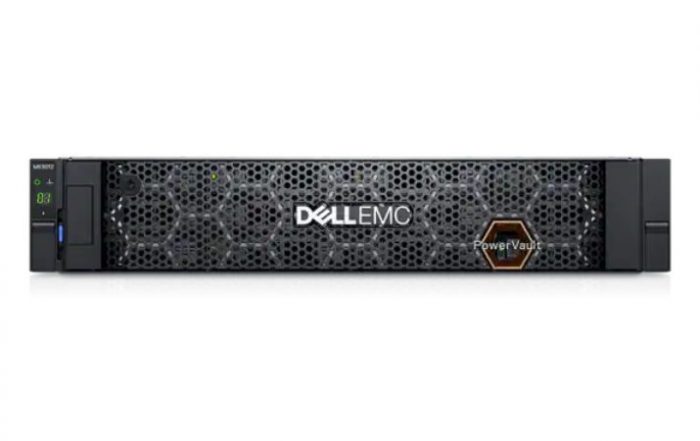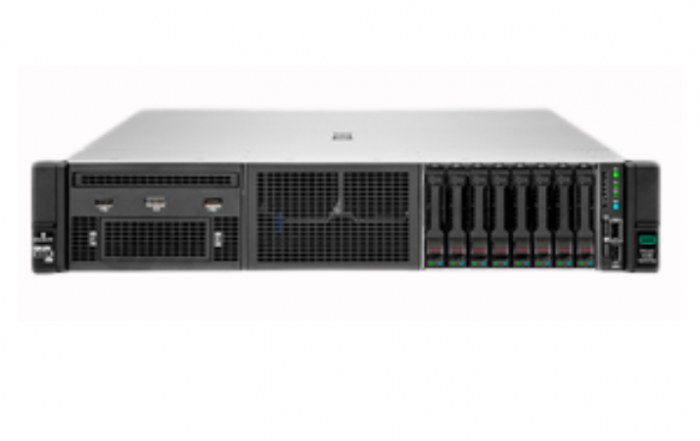Comparison between Dell PowerEdge R650 and Dell PowerEdge R750 Server

Comparison When it comes to server options, Dell offers a wide range of powerful and reliable solutions. In this comparison blog, we will analyze and compare the key features and specifications of the Dell PowerEdge R650 and Dell PowerEdge R750 servers. By evaluating their performance, scalability, and features, we aim to assist you in making an informed decision for your organization’s server needs. Server Model Dell PowerEdge R650 (1U) Dell PowerEdge R750 (2U) Processor Up to two 3rd Generation Intel Xeon Scalable processors per Socket Up to two 3rd Generation Intel Xeon Scalable processors per Socket CPU Cores Up to 40 Up to 40 RAM Up to 2TB Up to 2TB Memory 32 DDR4 DIMM slots, supports RDIMM 2TB max or LRDIMM 8TB max, speeds up to 3200 MT/s 32 DDR4 DIMM slots, supports RDIMM 2TB max or LRDIMM 8TB max, speeds up to 3200 MT/s Storage Multiple drive bays Multiple drive bays RAID Support Yes Yes Networking 1GbE, 10GbE, 25GbE 1GbE, 10GbE, 25GbE Power Supply Dual Redundant PSUs Dual Redundant PSUs Management iDRAC9 Enterprise iDRAC9 Enterprise Operating System Windows Server, Red Hat, Enterprise Linux, VMware ESXi Windows Server, Red Hat, Enterprise Linux, VMware ESXi Warranty and Support 5-year ProSupport 5-year ProSupport Some Points to make an Informed decision: Dell EMC PowerEdge R650: The Dell EMC PowerEdge R650 is part of Dell’s EMC line of servers, which focuses on enterprise-grade features and reliability. This server model is designed to deliver excellent performance and scalability for demanding workloads. It features the latest generation Intel Xeon processors for powerful computing capabilities. The R650 supports a wide range of storage options, including SAS, SATA, and NVMe drives, enabling flexible storage configurations. It offers advanced management and monitoring capabilities through Dell EMC’s integrated Open Manage software. The server provides high availability features, such as redundant power supplies and hot-plug components. Dell PowerEdge R750: The Dell PowerEdge R750 is a powerful and versatile server designed for enterprise-class applications and virtualization. It supports the latest generation Intel Xeon processors with multiple cores and high frequencies for optimal performance. The R750 offers a variety of storage options, including SAS, SATA, and NVMe drives, to meet different application requirements. It provides advanced security features, such as hardware-based encryption and secure boot, to protect sensitive data. The server supports high-speed networking with multiple integrated network interfaces for efficient data transfer. It offers a modular design with hot-plug components for easy maintenance and scalability. Conclusion: In this comparison, we’ve examined the key features and specifications of the R650 and R750 servers. Each model brings its unique strengths to the table, allowing you to choose a server that aligns with your organization’s specific needs. Evaluating factors like performance, scalability, storage, and pricing will help you make an informed decision. Consider your workload requirements, budget, and future growth plans to select the server that best suits your organization’s goals. You can contact our representatives to determine the most suitable server for your specific needs and we will guide you with the same. To buy visit: Dell PowerEdge R650 (1U) Dell PowerEdge R750 (2U)
HPE DL380 ProLiant Gen 10+ vs Dell PowerEdge R750

Comparison When it comes to choosing a server for your business, you want to make sure you’re getting the best value for your money. Currently, HP DL380 Gen 10+ and the Dell R750 are two of the most popular options on the market. Both of these servers are designed to provide reliable, high-performance computing power for businesses of all sizes. In this comparison blog, we will explore the key features and differences between these two servers to help you determine which one is right for your organization. Specifications Parameters HPE Proliant DL380 Gen10+ Rack Server Dell PowerEdge R750 Rack Server Processor Up to 3rd Generation Intel Xeon Scalable Processors, with up to 40 cores per processor Up to two 3rd Generation Intel Xeon Scalable processors, with up to 40 cores per processor Memory 32 DIMM slots, supports RDIMM 2 TB max or LRDIMM 8 TB max, speeds up to 3200 MT/s 32 DIMM slots, supports RDIMM 2 TB max or LRDIMM 8 TB max, speeds up to 3200 MT/s RAID Controllers Internal Controllers: HPE Smart Array P408i-a, P816i-a External Controllers: HPE Smart Array E208i-a Internal Controllers: PERC H745, HBA355I, S150, H345, H755, H755N External Controllers: PERC H840, HBA355E Drive Bays 8 or 12 LFF SAS/SATA/SSD 8, 10, 16, 18 or 24 SFF SAS/SATA/SSD 12 LFF SAS/SATA/SSD 8,16,24 SFF SAS/SATA/SSD Power Supply HPE 800W Flex Slot Platinum Hot Plug Low Halogen Power Supply Dual, Hot-plug, PSU (1+1), Power Supply Fault Tolerant Redundant, 1400W Warranty 3 Years Next Business Day Warranty by HPE India (Upgradable) 24*7 Support from OEM (Optional) 5 Year ProSupport 4 Hour and Mission Critical Warranty 24*7 Support from OEM (Optional) In conclusion, the HPE DL380 Gen 10+ and the Dell R750 match each other in terms of high-availability, scalability & in-built redundancy. The servers have similar specifications, including processors, memory, and drive bays. However, there are some differences in RAID controllers which are manufacturer specific, and power supply options. Both are excellent servers and your choice will depend on your comfort with the respective OEM, the price you are able to negotiate with your vendor and the warranty options available at your location. To buy visit: HPE Proliant DL380 Gen10+ Rack Server Dell PowerEdge R750 Rack Server
